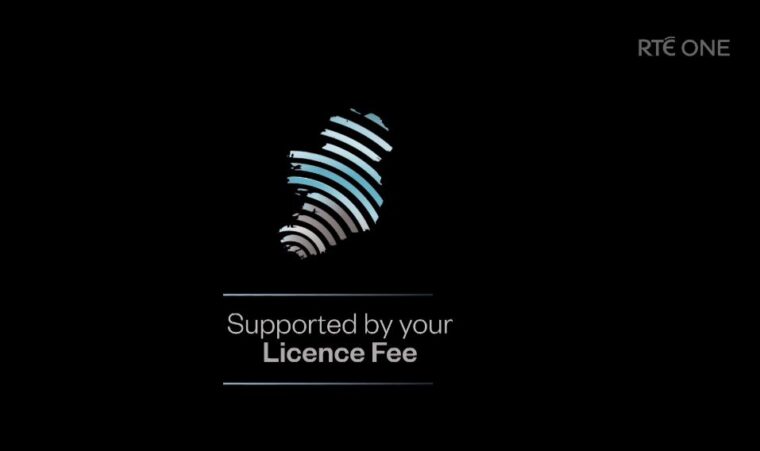
At a time when the government is considering a further liberalisation of our already permissive abortion legislation, RTE Investigates this week aired a documentary on “the realities of Ireland’s current abortion services” which was far from being fair and impartial. In fact, we didn’t get to hear from a single pro-life advocate, and it did not tell us that some of the experts we did get to hear from are, in fact, long-time pro-choice advocates. All in all, a very bad day’s work.
The documentary, which was aired on Monday night, included several ‘sting operations’, in an attempt to “expose” pro-life agencies that offer support to pregnant women. Three health professionals were introduced in neutral terms and were asked to comment on the advice those agencies were giving.
One of them, Mark Murphy, portrayed in the documentary as merely a GP, actually served as the national spokesperson for Together for Yes, the organisation leading the campaign to repeal the 8th amendment during the 2018 referendum. We were not told this.
Similarly, psychiatrist Veronica O’Keane featured in the documentary. She responded in shock to some of the advice being offered to pregnant women by the pro-life agencies, but she was a long-time critic of the 8th Amendment. Again, the innocent viewers at home were not informed of this, potentially leading them to perceive those doctors as impartial experts.
Yet, the most egregious example involved Dr. Jonathan Lord, who was portrayed in the documentary solely as a “consultant gynaecologist.”
In fact, Dr Lord is the Medical Director of MSI Reproductive Choices UK, one of the leading providers of abortion in the UK.
This chain of abortion clinics has a history of failings that put women at risk, but we are not told about this either, which is interesting given that the programme was supposed to be partly an exposé of manipulatively emotional practices.
In 2016, inspectors from the UK Care Quality Commission found numerous failings at MSI clinics, including staff “bulk signing” consent forms, limited clinical oversight, poorly trained staff, and at least one case in which a vulnerable woman was given a termination despite not understanding what was going on.
A further inspection in 2017 found more failings. (You can read the official reports here: https://www.cqc.org.uk/provider/1-102643434/reports )
MSI were also accused of paying their staff performances bonuses for persuading women to have abortions.
MSI Reproductive Choices UK used to be called "Marie Stopes UK" but in 2020 they removed the reference to Marie Stopes as she was a racist eugenicist who wanted the "hopelessly rotten and racial diseased" to be sterilised.
Inviting a representative from the most fervently pro-abortion sector to offer insight on purported "rogue pro-life agencies" is akin to soliciting commentary on animal cruelty from the CEO of a slaughterhouse corporation.
The programme also presented the stories of three women who went to England to have a termination. Their unborn children were diagnosed with some anomaly that would not qualify for abortion here in Ireland as they were expected to live more than 28 days after birth.
We were not told what the anomalies were. What life expectancy did the children have? Was it weeks, months or years?
Is RTE now effectively campaigning for abortion to take place in Ireland when a foetus is found to have an anomaly that might not result in death for years? Would that include Down Syndrome? We know from British figures that many of the Irish women who still travel to England for abortions (206 according to the last report), do so because their babies have conditions like Down Syndrome.
Even though the documentary was about the operation of our abortion law, it signally failed to tell us how the number opting for abortion keeps on increasing, probably far past the point that the average person who voted Yes in 2018 expected. It looks like 10,000 abortions took place here last year.
The undercover investigation of the counselling agencies didn’t even reveal very much. For example, one of the Gianna Care counsellors advised the RTE undercover reporter to read online about the possible bad emotional effects of abortion. But shouldn’t pro-choice agencies also do this?
Two RTE journalists attended, on false pretenses, a spiritual retreat for women who regret their abortion. It would have been insightful to hear from those women. RTE failed to interview them, or to interview Bernadette Goulding, the organiser of those retreats, who herself regrets her past abortion and dedicates her life to supporting women who have undergone similar experiences.
Furthermore, why would a documentary purportedly focused on “the realities of Ireland’s current abortion services” fail to even acknowledge, let alone interview, women who have undergone abortions after being incorrectly told that their baby had a fatal anomaly?
The programme set out to review Ireland’s abortion law and services, but the lack of balance in it was so bad, it deserves a review of its own.
Nessun commento:
Posta un commento